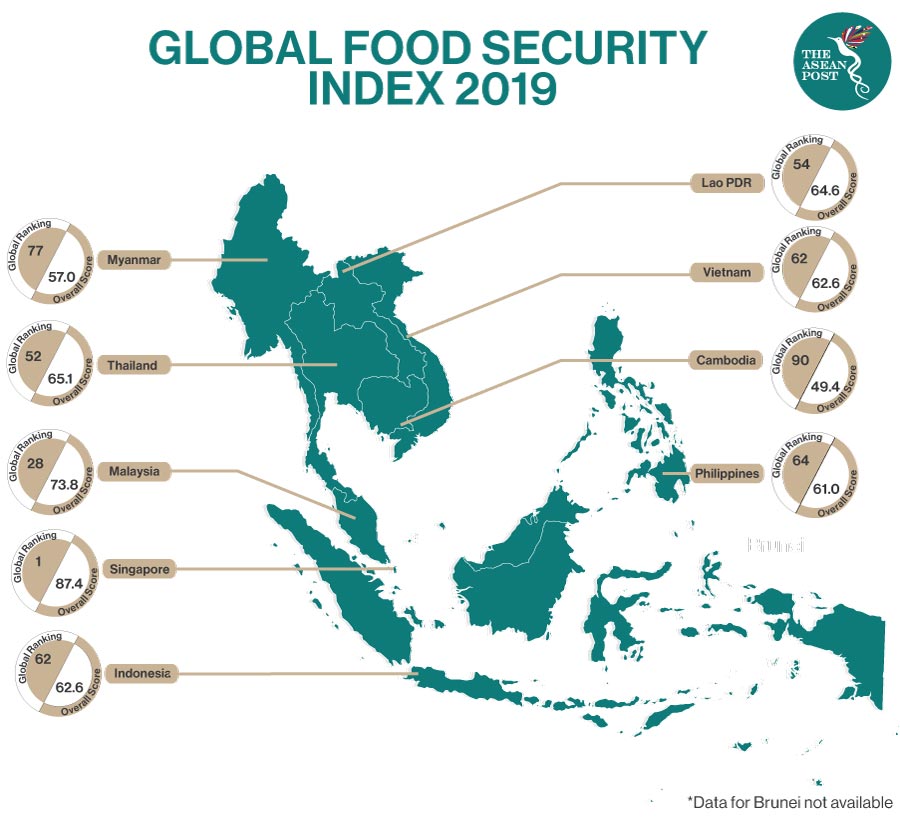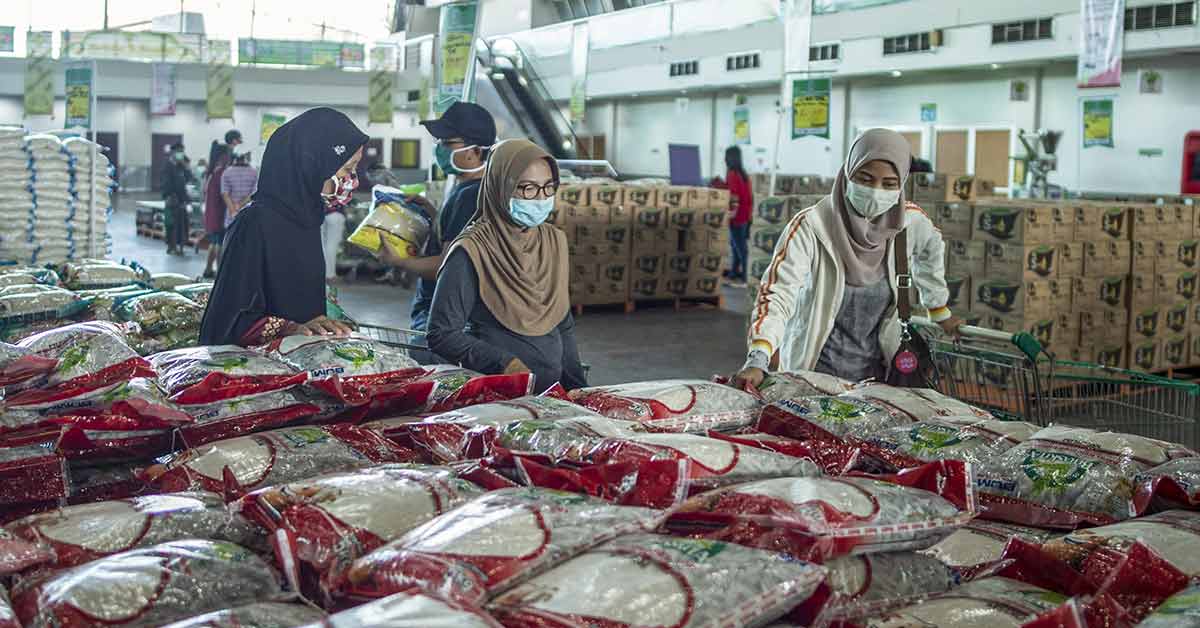Food security is still the top priority in President Joko Widodo's second term as part of his economic development agenda for national development 2020-2024. For the last five years, the policy direction of the Food Security Agency for strengthening food security in Indonesia was focused on three main areas – food availability, food accessibility and food utilisation.
At a glance, the food security policy during Jokowi's administration seems to benefit the rural economy as import restrictions have improved commodity prices and increased the incomes of farmers in the country. The price of rice has been steadily increased to an average of IDR12,000/kg (US$0.84/kg) in 2019 from IDR6,000/kg (US$0.42/kg) in 2010 and domestic maize prices have resulted in the doubling of the import price for maize. However, the policy does not align with the fact that the Indonesian Farmers' Terms of Trade has been lower than 100 in 15 provinces and has been in decline since 2012. Ironically, farmers haven’t necessarily benefited from the policy.
The government of Indonesia has been putting a lot of effort into developing several strategic commodities to achieve its food security agenda. The high level of dependence on rice is still a challenge for each regime that has led the country in meeting the food needs of the people. The Green Revolution that took place in Indonesia decades ago has impacted food diversity in households and has resulted in Indonesia’s dependency on rice as a staple.
Many local, more nutritious cereal options (e.g. sorghum, corn, tubers, and root vegetables) have been replaced by processed white rice containing less fibre and nutrients. To reduce this dependency on rice and to accelerate the process of food diversification, the government has issued a Presidential Regulation on the Policy for the Acceleration of Diversity in Food-Based Food Consumption. Indonesia’s food policies certainly need to be changed, by putting more focus on nutrition security.
Emphasising the importance of nutrients, internationally recognised nutritionist, Dr Michael Greger has said that people with the proper body weight can go up to 382 days without additional calories. However, no one can last even a fraction of that time without vitamins.
Despite the policy on food diversity, agriculture subsidies in Indonesia have been stagnant from one regime change to another, with funds allocated mainly to calorie based cereal crops (e.g. maize and rice) and sugar. This one-sided policy has prevented the opportunity to make fruit and vegetables more available and affordable for all households, let alone poor farmer households in rural areas.
More Expensive Calories
In past decades, food security policies in Indonesia have generally been driven by pro-poor, high-yielding crops, and investments in rural infrastructure. Having higher productivity and production of commodities through agricultural input subsidies was expected to increase farmers' household incomes. This increase in income presumably would be used to shift their food consumption behaviour from consuming low nutritious foods to better ones.
Yet, Nobel Prize winners in Economics, Professor Abhijit Banerjee and Professor Esther Duflo in their book titled "Poor Economics: A Radical Rethinking of the Way to Fight Global Poverty”, have said that if extremely poor people have an opportunity to spend a bit more on food, they do not pour everything into getting more calories, instead, they buy better-tasting, more expensive calories. They also figured out that even though the poor prefer subsidised grains, providing them more, does little to convince them to use the extra money they have to eat nutritious food.

Subsidy allocation has a long-standing effect on household consuming behaviour. Input subsidy has dramatically influenced the price of commodities in the retail segment. In rural households where the majority of incomes is spent on food, in addition to the preference for tastier foods, these households often choose to buy more affordable foods to consume.
For staple crops, where most subsidies are allocated, the government can start to promote the cultivation of rice. Research and development should be given priority so that farmers can start to plant more with affordable, productive seeds; allowing them to gradually plant more diverse crops.
Subsidy timing is also important according to Professor Esther Duflo as farmers in developing countries are usually present-biased and naive when it comes to buying subsidised inputs. Small, time-limited subsidies may, therefore, be attractive to them as farmers would increase inputs used for the present.
The journey to achieve food and nutrition security is long and arduous. The new controversial Omnibus Bill is viewed as weakening farmers and the nation's agricultural sector as it eases conditions on imports, environmental regulations and land use. It also allows food imports to be classified as a source of national food supply which is contrary to Law Number 18 of 2012 which states that food availability refers to food from domestic production and national food reserves. The Omnibus Law also allows the conversion of sustainable agricultural land into public-use land instead of expanding existing agricultural land or agricultural areas for the creation of food production centres.
The world has been badly hit by the COVID-19 pandemic and the economic crisis that has followed. The deadly outbreak has served as a lesson about the importance of sovereign food production and food reserves so that access to food sources is maintained in times of emergency; allowing the State to provide food assistance to specific groups under special conditions.
As an agrarian and maritime country, Indonesia’s government has an obligation to maintain the sustainability of these pillars of national economy. It also has to ensure that Indonesians are able to buy a variety of nutritious foods that are produced by locals.
Related Articles:

